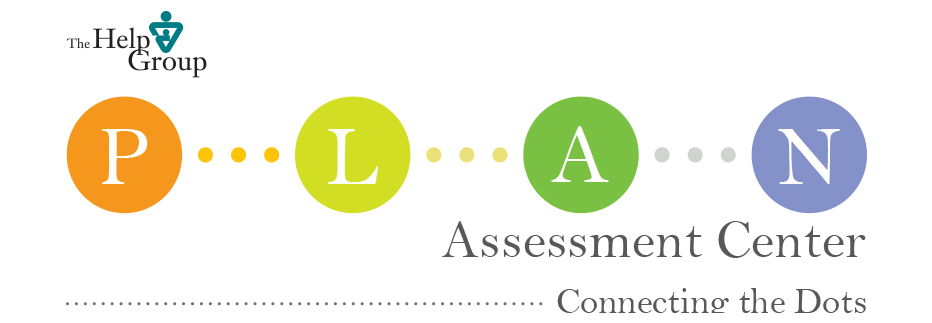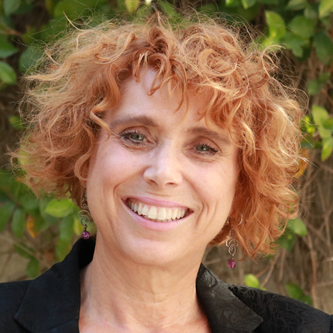
The Help Group’s P.L.A.N. Assessment Center is an assessment center dedicated to providing diagnostic and developmental assessments to individuals with suspected neurodevelopmental disorders (e.g., Autism Spectrum Disorder, ADHD, Intellectual Disability), social-emotional issues (e.g., anxiety, depression, self-esteem), and learning difficulties (e.g., reading, writing, mathematics, underachievement, anxiety, low self-esteem). Our assessments are comprehensive and are tailored to answer families’ and other professionals’ specific questions. We provide families with an understanding of a child’s overall development, diagnoses, and treatment recommendations. Our team includes experienced licensed Neuropsychologists, Clinical Psychologists, Postdoctoral Psychology Fellows, Doctoral Psychology Interns, and Doctoral Psychology Practicum Trainees who work directly with each client and family to provide individualized care.
 Laurie Stephens, Ph.D., Senior Director of Autism and LGBTQ+ Programs
Laurie Stephens, Ph.D., Senior Director of Autism and LGBTQ+ Programs
Dr. Stephens is a developmental psychologist who has been working with children, teens, and young adults on the autism spectrum for nearly 30 years. She currently serves as The Help Group’s Senior Director of Autism and LGBTQ+ Programs and oversees the Help Group’s PLAN Center. Previously, Dr. Stephens was the Director of Testing and Diagnostic Services at SUNY Stony Brook’s Division of Developmental Disabilities. She has been conducting Psycho-Ed and Diagnostic Testing spanning her entire career. She was one of the first psychologists to be research-level trained to administer and score the Autism Diagnostic Observations Scale (ADOS). Stephens has been instrumental in establishing a specialized diagnostic clinic for LGBTQ+ children, teens, and young adults who may suspect they have an autism spectrum disorder.
 Robert Kretz, Psy.D., Director of Psychology Training
Robert Kretz, Psy.D., Director of Psychology Training
Dr. Kretz oversees testing services provided by the P.L.A.N. Center. He is also the Director of Psychology Training for the Help Group’s Post Doctoral Fellowship, Doctoral Internship and Practicum training programs. Dr. Kretz earned his Doctor of Psychology (Psy.D.) from Pepperdine University in 1999 and has worked in a variety of clinical and training settings, specializing in psychological assessment for children, adolescent and young adults. His therapy specialization is treatment of explosive anger in children and teenagers and high levels of parent-child conflict. Before joining the Help Group in 2023, Dr. Kretz has worked as clinical director at a residential treatment facility in Riverside, CA, taught graduate level courses in intellectual and personality assessment, lectured on brain development and parenting strategies in multiple settings, and was training director and assessment supervisor for both doctoral and practicum psychology training programs.
Psychoeducational Assessments measure an individual’s cognitive, academic, and social-emotional functioning in order to answer questions about diagnosis (such as ADHD, Anxiety, Depression, etc), highlight strengths, and provide treatment recommendations.
The Assessment Process
The clinician will meet with you and your child to determine your goals for the assessment, and will tailor the testing battery to answer questions about your child’s diagnosis, strengths, and needs. These assessments typically include measures of:
- Academic ability
- Academic achievement
- Social-Emotional functioning
- Executive Functioning
Common diagnoses include:
- ADHD
- Mood Disorders
- Anxiety Disorders (GAD, Social Anxiety)
- Obsessive Compulsive Disorder
- Adjustment Disorder
Learning Assessments evaluate an individual’s academic functioning and ability and are specifically related to classroom based and standardized test based performances.
The Assessment Process
These assessments are typically less time-intensive, but will provide you with a wealth of information regarding your child’s academic achievement (the level at which they are currently functioning) and academic abilities (the level at which they could or should be functioning).
Common Diagnoses Include:
- Specific Learning Disability, with impairments in reading, writing, and/or math
Autism Assessments are tailored to aid in an initial diagnosis of Autism or to re-clarify an Autism diagnosis or other developmental delays.
The Assessment Process
The clinician can provide an initial diagnosis of Autism, a second opinion, or an updated diagnosis. Clinicians use measures such as the ADOS-2 and ADI-R, but might also use the Vineland or other developmental measures to help you ascertain your child’s current level of functioning and needs.
Common Diagnoses Include:
- Autism Spectrum Disorder (including severity)
- Intellectual Disability
- Communication Disorders
Neuropsychological Assessments consist of evaluations across multiple domains to understand complex conditions. These assessments are especially beneficial for individuals with medical conditions and impairments in multiple domains.
The Assessment Process
During each evaluation, a pediatric neuropsychologist examines a wide range of functions:
- Academic skills
- Attention and concentration
- Executive functioning
- Intellectual abilities
- Language processing and speech
- Learning and memory capacities
- Motor functioning
- Sensory capacities
- Visual and nonverbal functions
Common diagnoses include:
- Attention deficit/hyperactivity disorder (ADHD)
- Autism spectrum disorder
- Birth injury / Anoxia
- Brain injury or stroke
- Brain tumors
- Epilepsy
- Genetic anomalies
- Infectious diseases
- Learning disabilities
- Lead poisoning
- Tourette’s Syndrome
The Report
The clinician will generate a comprehensive neuropsychological evaluation report. This report will consist of the child’s relevant history, the results of the testing in narrative and data formats, a diagnosis section, and recommendations for further treatment. The child will meet with his or her clinician for a one-hour feedback session, during which he or she will be able to go over the information contained in the report, as well as receive his or her own copy of the report.
We offer a set fee for each type of assessment. The Help Group is a Medi-Cal provider and can also accept payment by check, credit card, and cash.
